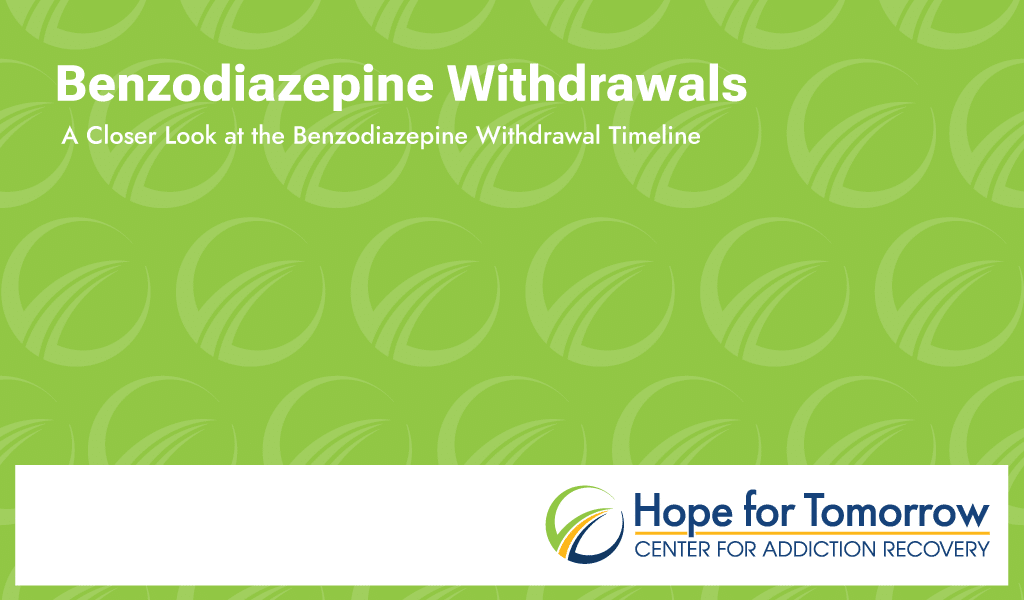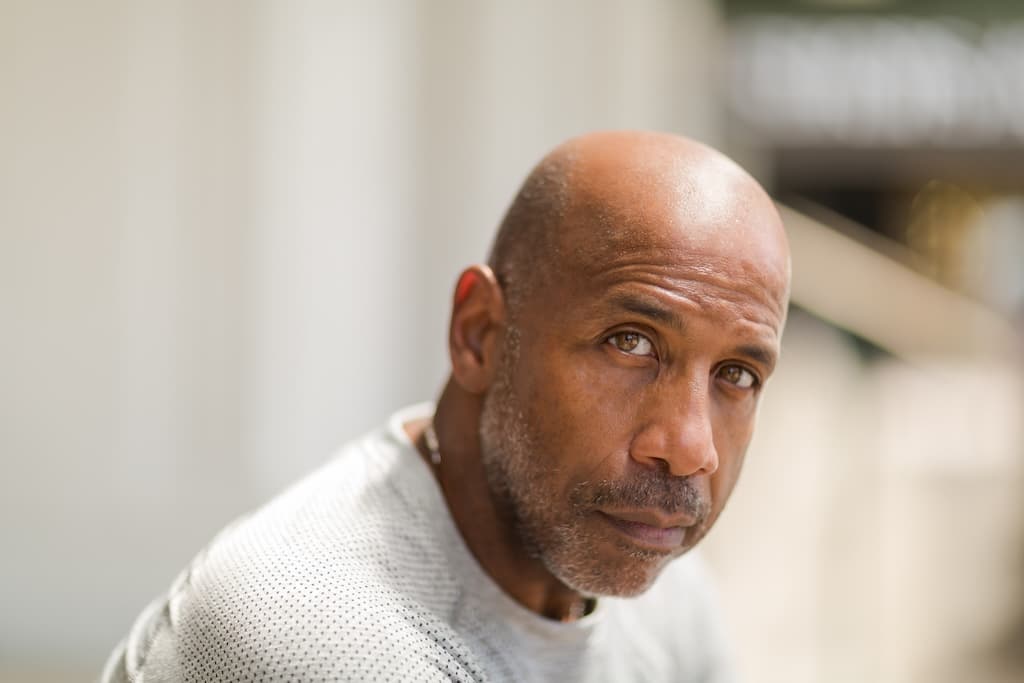

In a 2022 survey of 1,207 people who were prescribed benzodiazepines, 76% of respondents said they weren’t informed about the risk of using them long-term – and there definitely is a risk. One of the biggest risks is experiencing benzodiazepine withdrawals, and they aren’t easy.
In fact, one respondent on that survey said benzo withdrawal was the worst thing to ever happen to them. Another called it “the worst possible thing you can do to a person.”
Maybe you can relate. If you can, know that you aren’t alone, and help is available. Skilled doctors are willing to help you through the benzodiazepine withdrawal process, and our staff at Hope for Tomorrow is among them.
If you were just prescribed a benzodiazepine and are doing some research, reading this might be scary. Rest assured, plenty of people take their benzodiazepines as prescribed and don’t experience withdrawal at all. Others do experience it and can taper off their medication successfully with the help of their doctor. If you’re among those 76% of people whose doctor didn’t share this information with them, though, we’re especially glad you’re here. Let’s cover everything you need to know about benzodiazepine withdrawal.
Benzodiazepine withdrawal happens when you stop taking benzodiazepines, especially if you stop abruptly or were taking them for a long time. It causes painful physical and psychological symptoms.
When you take benzodiazepines for a long time, you can become dependent on them. This means your body becomes used to benzodiazepines in your system and doesn’t know what to do when they’re not there. Your body trying to adjust to that absence is what causes withdrawal symptoms.
One danger that comes with benzodiazepine withdrawal is the potential to develop a benzodiazepine use disorder.
It’s important to know that dependence is not the same as addiction. You can develop a dependence on benzodiazepines as soon as two weeks after you start taking them, but that doesn’t mean you have a substance use disorder. Addiction comes into play when you take them to deal with some kind of pain, are taking them outside of your doctor’s orders, and/or feel like you can’t function without them. The difficult symptoms that come with withdrawal can be a stepping stone to this because people taking benzodiazepines might feel the need to take more and more to fight them.
People who take benzodiazepines for a long time are also more susceptible to grand mal seizures, which can be dangerous. New mental health symptoms, such as psychosis and suicidal ideation, are also possible and cause for concern. While we need more research on how dangerous benzodiazepine withdrawal is, no one lost their life in one study of 82 people with acute benzo withdrawal. Current evidence suggests that one of the biggest risks of benzodiazepine withdrawal is suicide attempts, as opposed to any physical health complications.
There is also always the risk of overdose. This is especially true when taking benzodiazepines in high doses to try and counter withdrawal, or taking benzodiazepines alongside other substances.

Benzo withdrawal symptoms can range from mild to severe, and impact both your physical and mental health.
Some physical symptoms are:
Psychological symptoms might include:
Most people who go through benzodiazepine withdrawal will have both physical and psychological symptoms.
There is no specific timeline for how you’ll experience benzodiazepine withdrawal. It’s influenced by multiple factors, including how long you’ve taken benzos, the dose you’ve taken, and if you’re taking other medications or substances.
The timeline also depends on which benzodiazepine you took. Withdrawal symptoms from shorter-acting benzos, like Xanax, will probably happen sooner than longer-acting ones, like Valium.
You can look at the chart below for an estimated benzodiazepine withdrawal timeline.
| Stage | Details | Duration |
|---|---|---|
| Early withdrawal | Also known as the “rebound effect” – the symptoms you were taking your benzodiazepine for come back with a vengeance. | 3 hours to 4 days |
| Acute withdrawal | When most withdrawal symptoms begin and are at their worst. | 5 to 28+ days |
| Protracted withdrawal | Only an estimated 10% to 25% of people who take benzodiazepines long-term experience this phase. It can be prevented by a safe tapering regimen with a doctor and proper detox. | Months to years |
In some cases, you can manage benzodiazepine withdrawal by working closely with your doctor. They’ll make a plan for you to safely taper off your medication. It might take a while, but patience will result in significantly fewer withdrawal symptoms.
If you’ve taken benzodiazepines for a long time, or are stuck in the loop that is a benzodiazepine use disorder, we encourage you to find a medical detox program. It’s also a good idea if you don’t have a doctor you trust to safely manage your withdrawal.

If you’ve been living with benzodiazepine withdrawal on your own, it’s difficult. Even with support, it’s difficult – especially if your withdrawal is a result of a benzodiazepine use disorder. This isn’t something you have to go through alone. Maybe you tried to get help from another medical professional who didn’t offer the support you needed. Maybe a doctor didn’t prescribe your benzodiazepines at all, and you got them another way.
No matter what, Hope for Tomorrow is here for you. Our treatment for benzo addiction starts with medical detox, and we’ll work with you to ensure it ends in lasting recovery.
Hope for Tomorrow offers dual-diagnosis addiction treatment and mental healthcare to West Virginians in need – and we offer it to everyone. No matter the extent of your substance use disorder, the state of your health, or your past – you’re welcome at Hope for Tomorrow. We’re experienced in treating benzodiazepine use disorders and are ready and willing to guide you through the withdrawal process safely. Give us a call at 877-679-8162 to get started.